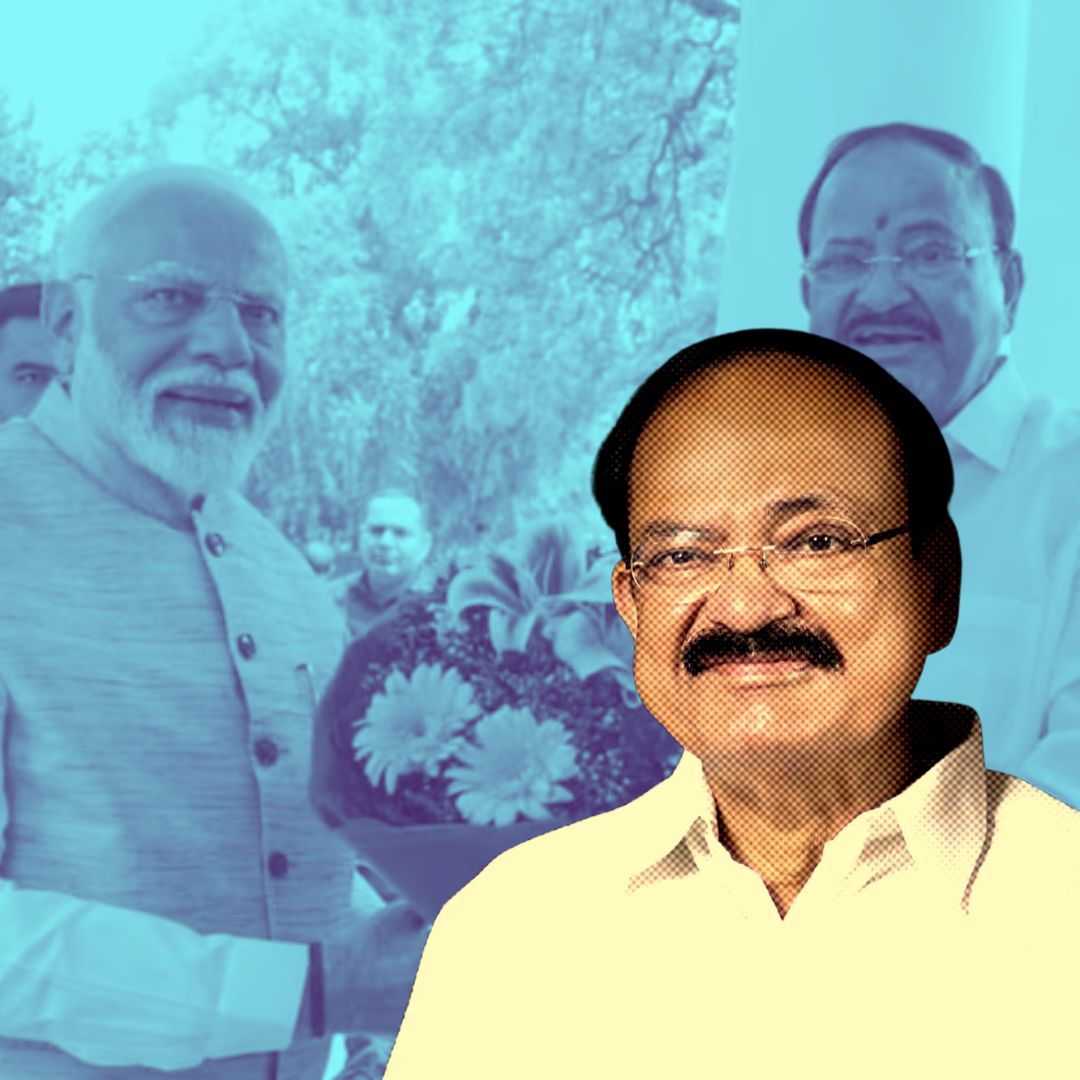Muppavarapu Venkaiah Naidu, a name that resonates deeply within the corridors of Indian politics, embodies the spirit of resilience, service, and community. Born on July 1, 1949, in the humble village of Chavatapalem in Andhra Pradesh, Naidu’s journey from a small agrarian background to becoming the 13th Vice President of India is a testament to his unwavering commitment to societal upliftment and democratic values.
Early Life and Political Awakening
Naidu’s roots in a farming family instilled in him a profound understanding of the challenges faced by rural communities. His early education at V.R. College and Andhra University laid the foundation for a life dedicated to public service. Even as a student, he was an ardent advocate for farmers’ rights and social justice, leading protests against injustices during the Emergency period, which led to his imprisonment. This formative experience not only shaped his political ideology but also honed his skills as an orator—a talent that would later define his political career.
Key Themes: Resilience and Advocacy
Naidu’s advocacy for farmers and rural development became a hallmark of his political journey. He rose through the ranks of the Bharatiya Janata Party (BJP), serving as its national president and later as a Union Minister under Prime Ministers Atal Bihari Vajpayee and Narendra Modi. His tenure saw significant initiatives like the Pradhan Mantri Gram Sadak Yojana, aimed at improving rural infrastructure. Naidu’s mantra of “Back to Villages” resonated with many, emphasizing grassroots development.
Vice Presidency: A New Chapter
Elected as Vice President in 2017, Naidu’s role transcended traditional boundaries. He served not just as a constitutional authority but also as an ambassador for social change. His tenure was marked by efforts to foster dialogue and understanding among diverse communities across India. His eloquence and quick wit made him a beloved figure in both political circles and among the general populace.
Key Themes: Unity and Dialogue
During his vice presidency, Naidu championed initiatives like the Swachh Bharat Mission and Smart City Mission, which aimed at urban renewal while keeping rural needs in focus. He often articulated that true progress lies in bridging the urban-rural divide, an idea that resonates with many Indians who feel left behind in the rush towards modernization.
Legacy and Recognition
As he stepped down from office in 2022, Naidu continued to inspire through his writings and public engagements. The recent release of three books detailing his life—Venkaiah Naidu: Life in Service, Celebrating Bharat, and Mahaneta—reflects not only his personal journey but also serves as an inspiration for future generations. Prime Minister Narendra Modi aptly noted that Naidu’s life story is one of “ideas, vision, and personality,” showcasing how an individual from humble beginnings can leave an indelible mark on the nation.
Key Themes: Inspiration and Service
The Padma Vibhushan award conferred upon him in 2024 further cements his legacy as a leader committed to service above self. It is not merely an accolade but a recognition of his lifelong dedication to improving the lives of ordinary citizens.
Conclusion
M. Venkaiah Naidu’s story is one that encapsulates the essence of The Logical Indian—an unwavering commitment to social change, community upliftment, and relatable leadership. His life serves as a beacon of hope for many aspiring leaders who wish to effect change from the grassroots level up. As India continues its journey towards progress, leaders like Naidu remind us that true leadership is about serving others with humility and integrity.









